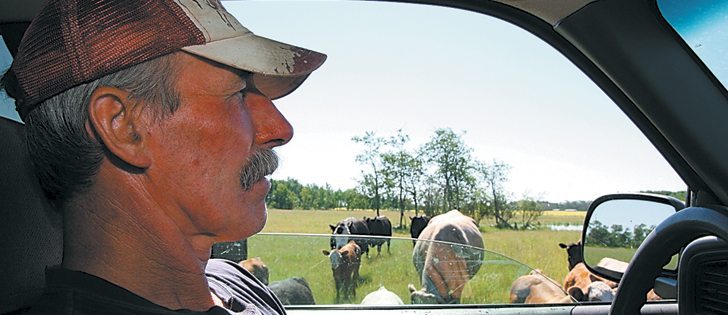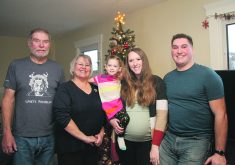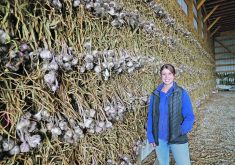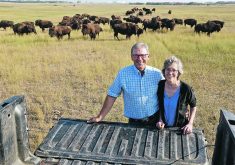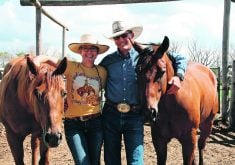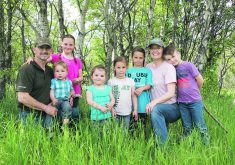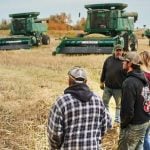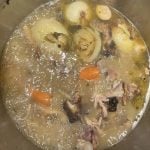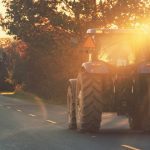TOGO, Sask. — The cattle graze on a carpet of lush green pasture dotted by pools of water. Nearby, a cluster of trees sitting in a pond likely won’t all leaf out next year due to successive years of standing water in eastern Saskatchewan.
Grain and cattle producer Wayne Airriess said the region has been hit by excessive levels of moisture, which have caused badly rutted and washed out rural roads and bridges and prevented or delayed seeding.
He and his wife, Donna, saw 381 millimetres of rainfall from April to July 1, double what is considered normal.
Read Also
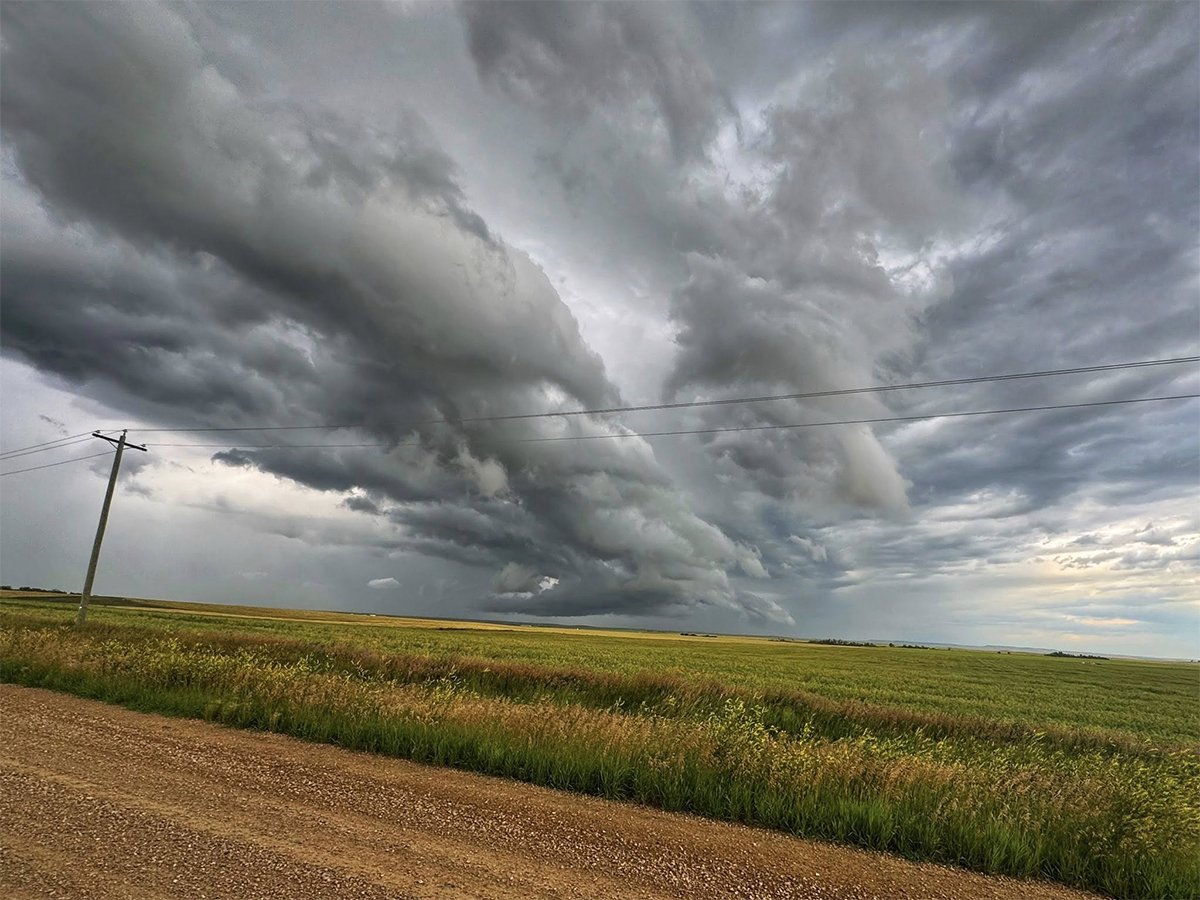
Southern Alberta receives needed moisture
Canadian Drought Monitor Report for July shows severe drought continuing to grip farmers in Alberta and the Prairies
The Airriess family is luckier than some because the land’s sandy soil drains well near Togo, Sask.
“Our land can tolerate more of the water,” Wayne said, noting about 400 acres of his six quarters are seeded to certified organic grains.
“Ours gets worked deeper. That helps.”
Last year’s oat crop, which he sells as milling oats in Yorkton, went as high as 125 bushels per acre.
“We couldn’t hardly get the oats through the combine they were so thick,” Donna said.
Good heat units and regular rains also mean weed challenges for organic farmers, Wayne said.
The couple seeds barley and peas together on fields that haven’t seen chemicals since 1994.
“The barley makes the peas stand up and reduces disease,” Wayne said.
At harvest, he sets his combine for peas, then separates out the barley and weed seeds.
He also seeds a fall planted crop to deal with wild mustard and considers legumes the best organic crop.
“It makes all others tick,” he said.
Donna said chemical free growing is a lifestyle choice that includes the use of natural medicine.
“I never did believe in it. It’s not safe,” said Donna of traditional farming practices.
She cited the good health of her family, which includes teenagers Jeff and Greg, since they switched to organics.
It involves more paperwork than traditional farming.
“Everything you do has to be documented,” said Wayne.
“The theory of organics is the guy who eats a loaf of bread is supposed to trace wheat back to the field where it was grown. With commercial grains, I don’t know if that ever happens.”
The couple shares the workload. They also maintain a commercial herd of 50 head of cattle that are grass fed and swatch grazed on second cut alfalfa or oats each fall. Calving begins in May and calves are sold by March.
He keeps an updated list of organic companies in Canada and phones to see what they’re offering each year.
“We have no trouble selling everything we grow,” said Wayne, citing the $10 bu. price for his organic peas that are sold to organic feed markets.
“We price everything to be picked up at the yard and pre-sell a lot of crop.”
That includes their horticultural products, grown in wood-heated homemade greenhouses behind the log house they have been building over the past five years.
“We’d never make anything if we had to do it with natural gas,” said Donna of the garden produce.
It’s a business that started in response to depressed markets for their beef cattle due to dry years and the outbreak of BSE.
“We relied on the vegetable market for income for a few years as we had no grain crop,” said Donna.
They plant vegetable varieties that can resist disease and ensure good ventilation to dry out leaves in wet weather.
Twice weekly, they take pre-sold bags of cucumbers and tomatoes for customers in Togo and Kamsack, beginning their day with picking as early as 5 a.m.
The cool basement of a second farmhouse in their yard serves as their processing and storage facility.
They have scaled down garden plots outside of the greenhouses since the farm economy improved, but still produce smaller amounts of potatoes, beans, cabbage and peas.
“We can’t keep up. We have to turn people down,” said Donna.
Expansion is unlikely, in part due to the difficulty of finding labourers locally.
“We can’t expand with just the two of us,” she said.
There are few opportunities to take it easy and get away, but the family enjoys fishing.
“With the greenhouses, you have to be there, you have to open and close the vents, doors and fans,” said Donna. “I sat on the deck once last summer.”
She once kept horses for her sons and taught a 4-H light horse club but sold them when the boys turned to dirt bikes.
The couple enjoys watching their youngest son play hockey and Wayne also helps out at the Togo rink, even though he doesn’t curl much anymore.
Wayne took over the farm from his father but neither Jeff nor Greg is interested in the farm at present and both look to jobs off farm.

